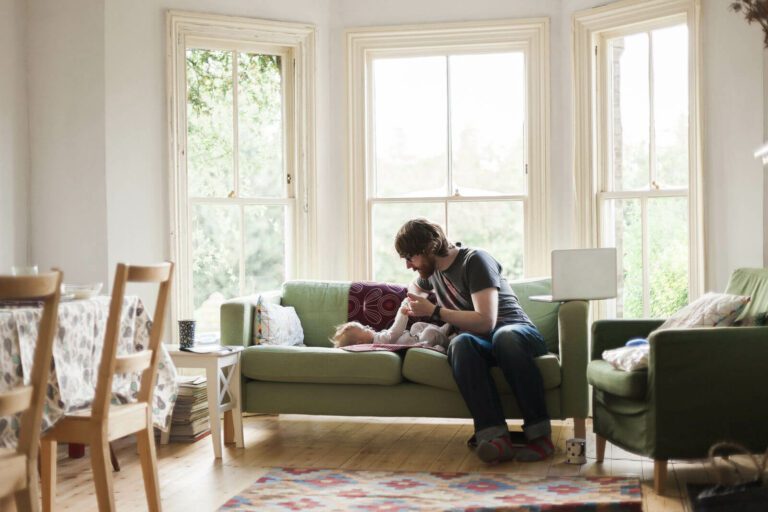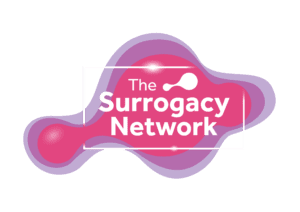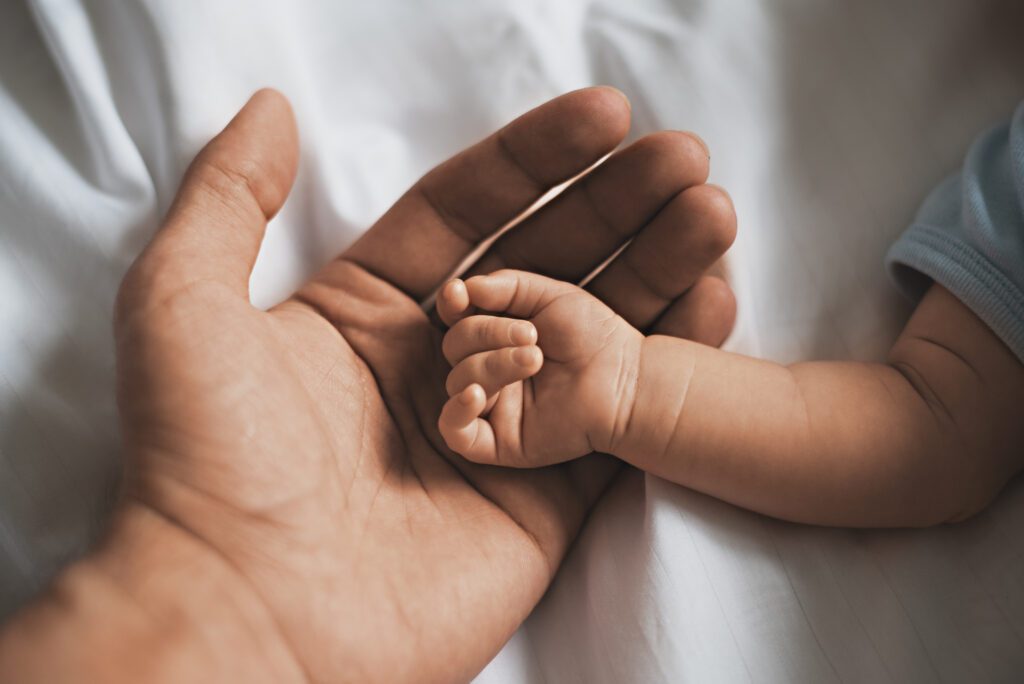Our team of specialist sperm and embryo donation law solicitors throughout the UK are here to help
At Stowe Family Law, we’re proud to have a knowledgeable team of specialist solicitors who have experience navigating the complexities of fertility law.
read moreAdvancements in science and technology have meant that there are more ways than ever for couples to grow their family, or for individuals to become single parents.
Whatever your path to parenthood, our specialist fertility lawyers are on hand to guide you through the legal elements of the process, ensuring a smooth journey.
Unfortunately, UK fertility law is complex when it comes to donor conception and fertility treatments. The law still lags behind the needs of modern families. However, our expert lawyers will support you every step of your unique path.
Key fertility law information
|
Why use a Fertility Lawyer? |
Whether you are a parent, donor or surrogate, getting expert legal guidance from a Fertility Lawyer can help you make informed decisions to achieve the best outcome. |
|
What are the different types of adoption? |
Domestic infant adoption (voluntary), foster care, closed & open, relative, single person, same-sex and stepparent are just a few types of adoption. |
|
What is assisted reproduction? |
Assisted reproduction allows someone to get pregnant through treatment, without the need for sexual intercourse. |
|
How does surrogacy work? |
Surrogacy is an arrangement where a woman carries and gives birth to a child for another person or couple. The intended parents raise the child after birth. |
|
What is donor conception? |
Donor conception is the process of having a baby using donated sperm, eggs or embryos through self-insemination or fertility treatment such as IVF. |
Our other fertility law services

What is donor conception?
Donor conception is the term covering ways of having a baby by using donated sperm, eggs or embryos through self-insemination or fertility treatment, such as IVF. It can also include surrogacy when gametes are donated.
Donor conception is when a person donates their sperm, egg or an embryo, and recipient parent(s) receive the donation. They can then follow the steps to conception through treatments such as In vitro fertilisation (IVF), Intracytoplasmic sperm injection (ICSI) or Intrauterine insemination (IUI).
Donor conception is a form of assisted reproduction.

Who would need to use donor conception?
Your GP or another medical professional may recommend donor conception to you for a variety of different reasons. These could include, but are not limited to:
read more- You are not producing your own eggs/sperm or your partner is not
- You are in a same-sex relationship
- You are single
- Your own gametes are unlikely to result in conception
- You have an inherited disease that may be passed on
Whatever your reason, our empathetic solicitors are here to help you navigate the legal complexities.
Meet our fertility law solicitors

What advice can a family lawyer give me?
Fertility law in the UK can be complex and everyone involved in the process has legal rights and responsibilities.
read moreThe legal consequences of your chosen treatment will likely need discussing with a solicitor, and you may be recommended or required by your clinic to speak to a fertility lawyer before embarking on the journey.
Our team can advise on:
- The legal implication of using donated eggs, donated sperm and donated embryos, including rights to information
- The importance of consent
- Legal parenthood
There are a number of legalities around informational rights. It is important to note that donors are not considered the legal parents of the donor-conceived child. Recipient parents are automatically considered the legal parents.
The key pieces of legislation are:
Human Fertilisation and Embryology Act 1990
Human Fertilisation and Embryology Act 2008
We’re proud to be a member of The Surrogacy Network, the leading directory and platform for surrogacy professionals.
We offer an award-winning service
I know you are excited to get started on your family building plans, but if you are using a known donor you need early legal advice to ensure that you understand how legal parentage will be assigned at birth.
Why choose Stowe Family Law?
As the only national law firm fully dedicated to family matters, our expert team offers professional advice so you can make a fully informed decision about your divorce.
We are proud to be rated ‘Excellent’ on Trustpilot. Check out our reviews to see what our previous clients have said about our service.
We feature in The Legal 500 rankings and are fully authorised and regulated by the Solicitors Regulation Authority (SRA).
We keep you informed. Take a look at our support section, which features a range of helpful guides, focusing on important topics including finances and mediation.
Let's ask Mrs H
I approached Louise to help me with my, divorce, finances and safeguarding issues around my children . Louise was extremely professional, friendly and knowledgeable. She offered me so much support and guidance and was with me every step of the way. It never felt like anything was too much trouble and I always felt reassured. I would highly recomme… Read morend Louise at Stowe family law, if you are looking for a highly professional and superb service then I suggest you instruct Stowe family law to act on your behalf as I am so grateful that I did.Let's ask Mrs S
I am absolutely delighted with the handling of my case and your knowledge. You have been brilliant and helpful.Let's ask Mr H
May I thank Nastassia for such excellent service and support in my recent divorce which led to a successful outcome. Nastasia’s pleasant and caring nature was always appreciated at such an emotional time and kept me focused on the main issues. Her detailed knowledge, prompt attention to detail and professionalism were absolutely first rate. Toget… Read moreher with our Barrister, Charles Eastwood, what an impressive team. Thank you. I can thoroughly recommend Nastassia.Let's ask Mr E
Professional, highly knowledgeable and friendly approach - could not recommend Sebastian Burrows and Stowe enough. We felt well looked after and in safe hands the entire time.Let's ask Mr C
Angela and her team were always supportive, informative and professional. I felt advice was realistic and balanced. My subject matter was sensitive and was always handled in the appropriate manner. I would happily recommend them to anyone who needed their services.Let's ask Ms A R
Jade has given me the confidence and support I need. She is warm, professional, empathetic and knowledgable.Let's ask Anon
I am very grateful for all your help. I’ve never been in this situation before and it makes it very challenging when the other party is making unreasonable requests.Common questions about donor conception
Common questions about donor conception
-
What types of donation are there?
The three types of donation are egg donation, sperm donation and embryo donation.
If you are intending on donating your gametes, you should do it through a registered clinic. The Human Fertilisation and Embryology Authority (HFEA) has a list of registered clinics.
It is recommended that you speak to a fertility lawyer to understand your legal rights and responsibilities as a donor.
-
Can I donate if I am LGBTQ+?
Yes, you can donate your eggs or sperm if you identify as LGBTQ+.
In May 2024, the government passed a law which means that LGBTQ+ people who have non-transmissible HIV can donate their eggs and sperm.
However, there are restrictions regarding eligibility criteria. These are not specific to LGBTQ+ couples but may apply to trans-men who have started to undergo hormone replacement therapy (HRT) as the quality of eggs can be reduced.
-
Will my child legally have to have a relationship with the donor?
Fertility law in the UK means that the donor has no legal rights to the child if you use a registered donor clinic. This means that they have no legal or financial obligation to the child. They will not be named on the birth certificate, and you (and your partner, if you have one) will be the child’s legal parents. They have no legal right to have a relationship with the child.
Where legal complications can arise is if the treatment is not done through a registered clinic, as the donor may be considered a parent by law.
Our specialist solicitors can discuss this with you and give advice.
-
Do I get paid for being a donor?
It is illegal to pay for donation in the UK. You may be able to receive compensation, which is up to £750 per donation cycle for eggs, and £35 for sperm. You may be able to claim more if your travel or other expenses were more than this.
-
Can I donate to a family member?
It is legal to donate to your family member, however there are restrictions on mixing the eggs and sperm of close family members, e.g., brother and sister (including half brothers/sister).
-
Am I a legal parent if I donate my sperm/egg?
If you are a woman and you give birth to a child, you are automatically considered the legal parent of the child, regardless of whether the egg is donated or is your own.
As a donor, providing you use a registered UK fertility clinic, you will have no legal rights or responsibilities towards any child conceived from your donation.
However, this can be more complex if you do not use a registered clinic as you may be considered the legal parent.
It is best to seek legal advice, as well as the advice of the fertility clinic, before embarking on the donation journey.
Latest advice
Adopting a stepchild
Newsletter Sign Up
Sign up for advice on divorce and relationships from our lawyers, divorce coaches and relationship experts.
Privacy Policy






















